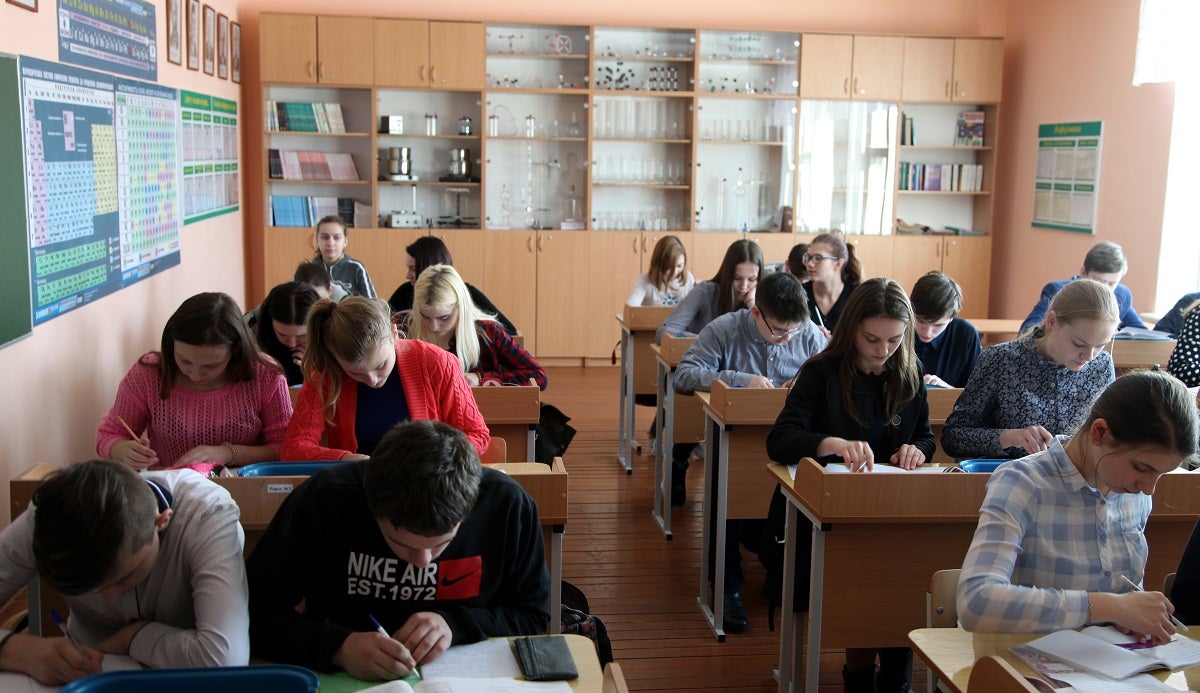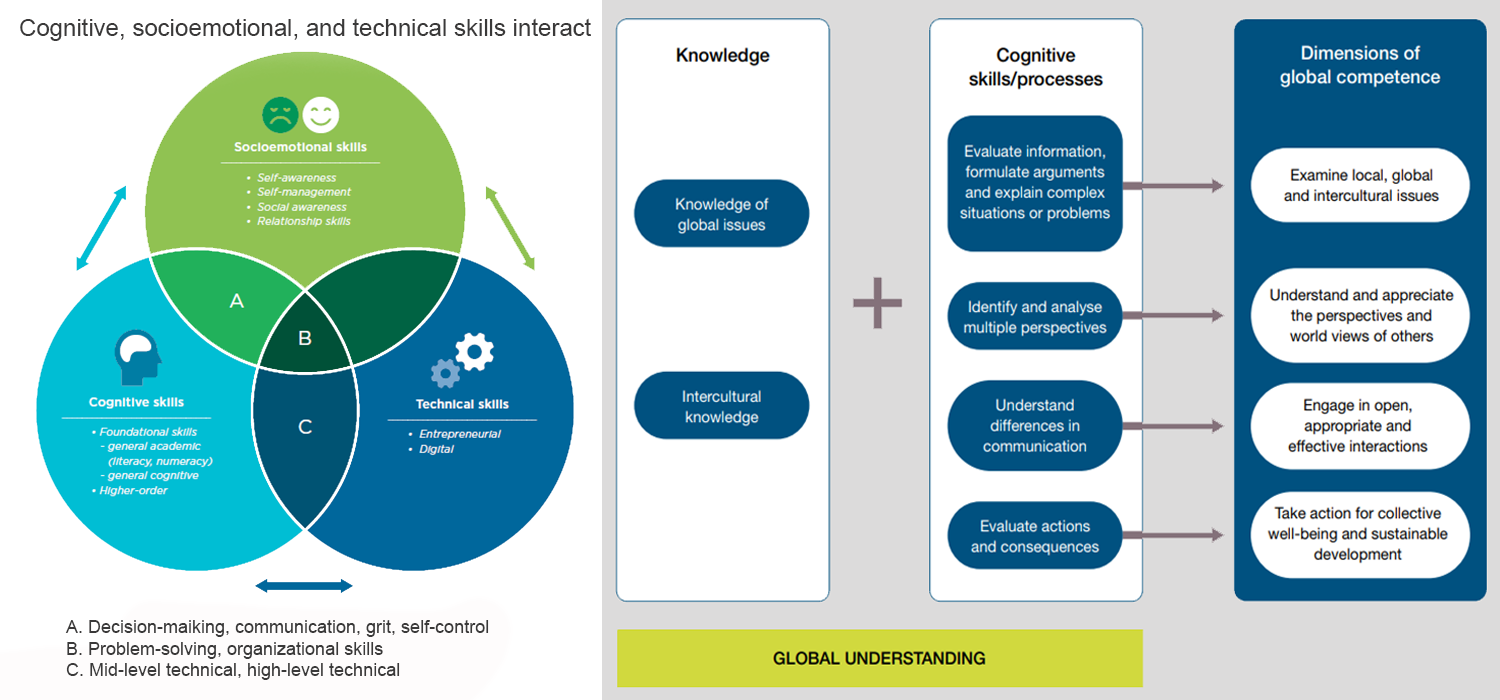In April and May 2018, children all over Belarus took tests for the international study Programme for International Student Assessment (PISA).

When students’ skills and knowledge are measured internationally, some countries get a big surprise – especially countries considered to have top-quality education. Take Germany, for example.
Germany’s first PISA results, in 2000, revealed low performance among students compared to their peers in other countries – this was called the “PISA shock”. Fortunately, this outcome triggered large-scale education reforms in Germany, leading to greatly improved PISA performance.
On the other hand, PISA results are sometimes a pleasant surprise. Take for example the high performance in 2012 of Vietnam – a country with low per capita income but, apparently, a very efficient education system.
Around the world, interest in measuring the real learning outcomes of school students has been on the increase. The number of countries participating in the PISA study, managed by the Organization for Economic Cooperation and Development (OECD), grew from 32 in 2000 to 79 in 2018.
This year, Belarus participated in the PISA assessment for the first time, with support from the Belarus Education Modernization Project, which is financed by the World Bank.
For Belarus, as for the six other countries joining PISA in 2018, participation means an opportunity to look at the education system through an international lens. By identifying the strengths and bottlenecks of its education system, Belarus will be better able to understand student performance in mathematics, reading comprehension, and science.
PISA examines not only students’ aptitudes at assimilating and applying school knowledge, but also their “soft skills” – skills that are increasingly important in a rapidly changing world. Since 2012, the OECD has introduced additional dimensions to the PISA test, including measuring socio-emotional skills such as collaborative problem-solving.
In PISA 2018, Belarusian students participate in a global competence assessment, which measured children’s capacity to examine local, global and intercultural issues; to understand and appreciate the perspectives and world views of others; to engage in open, appropriate and effective interactions with people from different cultures; and to act for collective well-being and sustainable development.
Why does all this matter? Because in today’s globalized world children without an international perspective risk having less opportunities than their peers who can travel and learn about the world. Here, for example, is a question covered in the global competence survey:
“Explain why some countries suffer more from global climate change than others.”
Such questions will no doubt spark a lot of discussion among students!
PISA provides very interesting insights into how children learn best. For example, we now know that students benefit greatly from a combination of teacher-directed and self-motivated instruction. And we know that students who are fully committed to their educational development from poorer families may outperform children from affluent families but who are less dedicated.
The first results for Belarus will be revealed in 2019. That’s when we will find out if Belarus gets a “PISA shock”… or a pleasant surprise!
But, as every good teacher knows, it isn’t the score itself that ultimately matters. The most important thing for Belarus is to learn what is working well in its education system, and what needs “further improvement”.

When students’ skills and knowledge are measured internationally, some countries get a big surprise – especially countries considered to have top-quality education. Take Germany, for example.
Germany’s first PISA results, in 2000, revealed low performance among students compared to their peers in other countries – this was called the “PISA shock”. Fortunately, this outcome triggered large-scale education reforms in Germany, leading to greatly improved PISA performance.
On the other hand, PISA results are sometimes a pleasant surprise. Take for example the high performance in 2012 of Vietnam – a country with low per capita income but, apparently, a very efficient education system.
Around the world, interest in measuring the real learning outcomes of school students has been on the increase. The number of countries participating in the PISA study, managed by the Organization for Economic Cooperation and Development (OECD), grew from 32 in 2000 to 79 in 2018.
This year, Belarus participated in the PISA assessment for the first time, with support from the Belarus Education Modernization Project, which is financed by the World Bank.
For Belarus, as for the six other countries joining PISA in 2018, participation means an opportunity to look at the education system through an international lens. By identifying the strengths and bottlenecks of its education system, Belarus will be better able to understand student performance in mathematics, reading comprehension, and science.
PISA examines not only students’ aptitudes at assimilating and applying school knowledge, but also their “soft skills” – skills that are increasingly important in a rapidly changing world. Since 2012, the OECD has introduced additional dimensions to the PISA test, including measuring socio-emotional skills such as collaborative problem-solving.
In PISA 2018, Belarusian students participate in a global competence assessment, which measured children’s capacity to examine local, global and intercultural issues; to understand and appreciate the perspectives and world views of others; to engage in open, appropriate and effective interactions with people from different cultures; and to act for collective well-being and sustainable development.
Why does all this matter? Because in today’s globalized world children without an international perspective risk having less opportunities than their peers who can travel and learn about the world. Here, for example, is a question covered in the global competence survey:
“Explain why some countries suffer more from global climate change than others.”
Such questions will no doubt spark a lot of discussion among students!
PISA provides very interesting insights into how children learn best. For example, we now know that students benefit greatly from a combination of teacher-directed and self-motivated instruction. And we know that students who are fully committed to their educational development from poorer families may outperform children from affluent families but who are less dedicated.
The first results for Belarus will be revealed in 2019. That’s when we will find out if Belarus gets a “PISA shock”… or a pleasant surprise!
But, as every good teacher knows, it isn’t the score itself that ultimately matters. The most important thing for Belarus is to learn what is working well in its education system, and what needs “further improvement”.



Join the Conversation